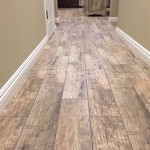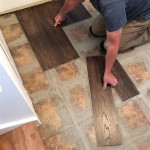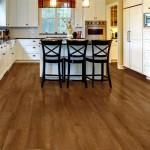Unveiling the Essential Elements of the US Wood Flooring Market
The United States wood flooring market is a vibrant and diverse industry that plays a crucial role in the residential and commercial construction sectors. This article delves into the essential aspects of this market, providing insights into its key drivers, challenges, and future trends.
Market Size and Trends
The US wood flooring market is estimated to be valued at over $10 billion annually and is projected to grow steadily in the coming years. The increasing popularity of hardwood flooring in both residential and commercial applications is a major driver of this growth. Hardwood floors offer a warm, elegant, and durable option that can enhance the aesthetic appeal and value of any property.
Types of Wood Flooring
The US wood flooring market offers a wide range of species and styles to choose from. Some of the most popular types include:
- Oak: Known for its durability, strength, and timeless beauty.
- Maple: A light-colored hardwood with a smooth, even grain.
- Walnut: A rich, dark-colored hardwood with a unique texture.
- Cherry: A reddish-brown hardwood that is known for its rich color and lustre.
- Exotic Woods: These include species such as mahogany, teak, and Brazilian cherry, which offer unique colors, patterns, and textures.
Key Drivers of Growth
The growth of the US wood flooring market is driven by several key factors, including:
- Rising disposable income: Consumers have more disposable income to invest in home renovations and upgrades.
- Increased demand for eco-friendly products: Wood flooring is a sustainable and renewable resource that appeals to environmentally conscious consumers.
- Technological advancements: Innovations in manufacturing and installation techniques have made wood flooring more affordable and easier to install.
Challenges for the Industry
The US wood flooring market also faces several challenges, such as:
- Competition from other flooring materials: Carpet, tile, and laminate flooring are all popular alternatives to wood flooring.
- Supply chain issues: The global pandemic and other disruptions have caused supply chain issues that can affect the availability and cost of wood flooring.
- Environmental regulations: Regulations aimed at protecting forests can limit the supply of certain types of wood flooring.
Future Trends
The US wood flooring market is constantly evolving, and several trends are shaping its future:
- Engineered wood flooring: Engineered wood flooring is a popular alternative to solid wood flooring as it is more stable and durable.
- Wide-plank flooring: Wide-plank flooring is becoming increasingly popular, offering a luxurious and spacious look.
- Smart flooring: Smart flooring incorporates sensors and technology to provide additional functionality, such as temperature control and moisture resistance.
Conclusion
The US wood flooring market is a dynamic and growing industry that offers a wide range of options for both residential and commercial applications. Understanding the key drivers, challenges, and future trends of this market is essential for industry participants to make informed decisions and position themselves for success.

North America Wood Flooring Market Share Report 2030

U S Wood Flooring Market Size And Share Report 2030
United States Wood Flooring Solid Engineered Market Size Share Trends Ysis Report 2024 To Surpass 7 Billion By 2030 Rising Demand For Aesthetically Appealing Durable

Wood And Laminate Flooring Market Share 2024 2032

U S Wood Flooring Market Size Share Trends Ysis Report By Solid Engineered End Use Replacement New Construction Type And Segment Forecasts 2024 2030

Wood And Laminate Flooring Market Size Industry Report 2024 2025

North America Residential Wood Flooring Market Ysis Forecast 2027

Flooring Market Size To Hit Around Usd 565 23 Billion By 2032

United States Flooring Market Share Size Growth 2024 2032

Wood Flooring Industry Faces Supply And Challenges Hardwood Floors
Related Posts








